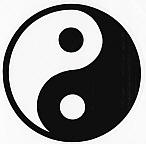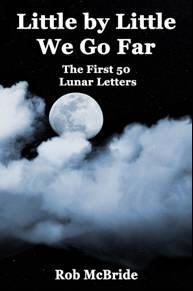 ”How” rather than “what” is most important. As a Financial Consultant and Marketing Director in the financial services industry for 17 years, the most important lesson I learned is that money doesn’t buy happiness. I have met people who have a lot of money and excellent jobs. Some are extremely happy; others, in the same situation, are among the most miserable souls I have ever met. The opposite is also true. I have met people with little money and modest jobs whose attitudes have varied between being spectacularly content to demoralizingly dreary.
”How” rather than “what” is most important. As a Financial Consultant and Marketing Director in the financial services industry for 17 years, the most important lesson I learned is that money doesn’t buy happiness. I have met people who have a lot of money and excellent jobs. Some are extremely happy; others, in the same situation, are among the most miserable souls I have ever met. The opposite is also true. I have met people with little money and modest jobs whose attitudes have varied between being spectacularly content to demoralizingly dreary.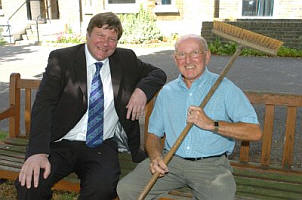
It is how we do our respective jobs, rather than what we do, which determines our happiness. One can be a street sweeper with an excellent attitude and be carefree and content. Another can have an excellent profession, perhaps even be the owner of a prestigious company, and yet be dull and dismal. What, then, is the key to achieving the happiness we desire?
Let me first clarify something. It’s better to have money and, preferably, a lot of it. We all have needs which, in one way or another, require money. Nevertheless, it is our attitude towards what we have and do which makes the difference. Some have a special gift enabling them to create wealth and prestige easily; others lack this talent. While it is common to think it is our job or the amount of money in our bank account creating happiness, this is not always the case.
 One way to achieve more happiness in our lives is by utilizing the “scales of justice” to analyze our condition. Start by writing all the things you have on one side. On the other side write all the things you don’t have. You can include material, physical and or spiritual items. Think of all the things to be grateful for which cost absolutely nothing; our arms, our hands, our legs, our feet, our sight, our smell, our touch and so much more. This simple exercise reveals we already possess incredible abundance.
One way to achieve more happiness in our lives is by utilizing the “scales of justice” to analyze our condition. Start by writing all the things you have on one side. On the other side write all the things you don’t have. You can include material, physical and or spiritual items. Think of all the things to be grateful for which cost absolutely nothing; our arms, our hands, our legs, our feet, our sight, our smell, our touch and so much more. This simple exercise reveals we already possess incredible abundance.
It’s natural to want more money, have a bigger house, and more economic freedom. While these can bring pleasure and joy, these are not what always bring the most happiness. Rather, it is our vision and attitude towards the world and life. Our enthusiasm and conformity will fluctuate from time to time. However, those of us who see ourselves as part of something much greater are more able to maintain happiness in the most difficult of circumstance.
Part of the often elusive answer lies in the way we interpret what happens to us day in and day out. If we perceive the world is against us, it is difficult to keep a positive outlook. When we understand the world is neither for nor against us, we can see a situation for what it is and not for what we imagine it to be. Believing, “If it is to be, it’s up to me,” determines our destiny. There are many factors influencing our direction. What is critical is how well prepared are we for those times when opportunities present themselves.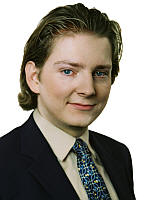
We all know those who are consistently positive and others who are constantly negative, even though they are in similar environments, and in the same jobs. It is how we manage and interpret what is happening, not what occurs, which determines our happiness. The dynamic nature of life assures there will be challenge and change in our journey. Those of us who accept what happens as a natural part of life can handle any situation and drive forth with courage.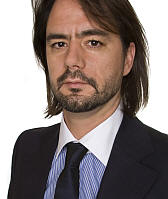
Our happiness depends on how we flow with what we have, and what we do with it, rather than on what we have or what we do for a living. We all possess a magnificent mind which can paint a picture bursting with color of joy and delight. When we choose to be happy with what we have and what we do, we create a fulfilling life.
∞ Rob McBride ∞
LL II 9


 For better or worse our routines direct our destiny. Frequently, we think about routine as something monotonous and undesirable. Even so, we all have routines and not all of them are bad.
For better or worse our routines direct our destiny. Frequently, we think about routine as something monotonous and undesirable. Even so, we all have routines and not all of them are bad.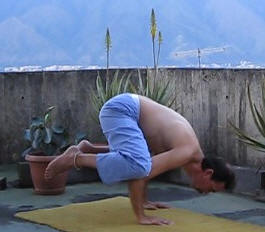 There is a study which says it takes 21 days to establish a positive habit and only 3 days to lose it. While it may actually take more or less time, it’s a good rule of thumb. Knowing what we should do is easy; doing it is another story.
There is a study which says it takes 21 days to establish a positive habit and only 3 days to lose it. While it may actually take more or less time, it’s a good rule of thumb. Knowing what we should do is easy; doing it is another story. One way to close this gap is to establish and achieve small realistic goals. Let’s look at an example. If someone hasn’t done any exercise in the past year, is it realistic they will start doing exercise every day starting next Monday? While anything is possible, it isn’t probable.
One way to close this gap is to establish and achieve small realistic goals. Let’s look at an example. If someone hasn’t done any exercise in the past year, is it realistic they will start doing exercise every day starting next Monday? While anything is possible, it isn’t probable. Kids are by nature curious. They are fascinated by everything and all is of interest. They want to touch and taste everything in their path. It doesn’t matter the color or size; they want to know more about their world.
Kids are by nature curious. They are fascinated by everything and all is of interest. They want to touch and taste everything in their path. It doesn’t matter the color or size; they want to know more about their world.
 Our experience teaches us “the best way to do something.” Unless someone or something shows us a better way to do it, we will continue doing the same. Similar actions will always produce similar results. If these results are what we desire, we are on our way and no change is necessary! If not, we can change what we do to achieve different results.
Our experience teaches us “the best way to do something.” Unless someone or something shows us a better way to do it, we will continue doing the same. Similar actions will always produce similar results. If these results are what we desire, we are on our way and no change is necessary! If not, we can change what we do to achieve different results.
 We learn from everything. With our infinite wisdom we can learn from the simplest things. The earth provides a magnificent mechanism which propagates life. Though it doesn’t always provide an easy path, it does provide all we require for abundance.
We learn from everything. With our infinite wisdom we can learn from the simplest things. The earth provides a magnificent mechanism which propagates life. Though it doesn’t always provide an easy path, it does provide all we require for abundance.
 We frequently think of adversity which lurks around each corner as something negative to be endured. We flee discomfort and seek refuge in comfort. Nevertheless, it is adversity which molds our character. Those who have never faced adversity are often devoid of significance and emotion. While some would like to live with a little less significance and emotion, these very elements give us sustenance to carry on in the face of adversity.
We frequently think of adversity which lurks around each corner as something negative to be endured. We flee discomfort and seek refuge in comfort. Nevertheless, it is adversity which molds our character. Those who have never faced adversity are often devoid of significance and emotion. While some would like to live with a little less significance and emotion, these very elements give us sustenance to carry on in the face of adversity. We often look to comfort and convenience as a path to happiness and harmony. Professor Mihaly Csikszentmihalyi (pronounced “chick–sent–me–high-ee”), renowned for his investigation on well-being and happiness, has found we feel best when we are in a state he calls “Flow.”
We often look to comfort and convenience as a path to happiness and harmony. Professor Mihaly Csikszentmihalyi (pronounced “chick–sent–me–high-ee”), renowned for his investigation on well-being and happiness, has found we feel best when we are in a state he calls “Flow.”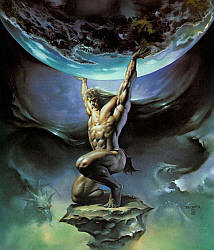

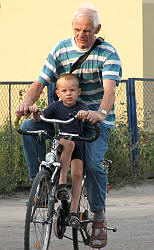 As we mature and age, it is unlikely we will recall endless hours spent in front of the television relaxing. Nor is it likely we remember what we achieved with little or no effort. What will stand out as a magnificent monument to our life, and will likely become the stories we tell our children and grandchildren, are those challenging, uncomfortable situations we were able to overcome with courage and dignity.
As we mature and age, it is unlikely we will recall endless hours spent in front of the television relaxing. Nor is it likely we remember what we achieved with little or no effort. What will stand out as a magnificent monument to our life, and will likely become the stories we tell our children and grandchildren, are those challenging, uncomfortable situations we were able to overcome with courage and dignity.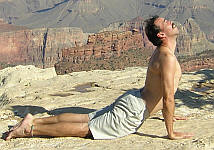 How can we achieve Comfort in Discomfort?
How can we achieve Comfort in Discomfort? Let’s look at an example. Suppose there are two people working for the same company. They both lose their jobs at the same time because of circumstances beyond their control. One says, “Poor me, I’ll never find another job as good as this one! My life will never be the same and now it will be impossible to achieve what I desire.” The other says, “Though it was a good job, I now have the opportunity to find an even better one! I have confidence and faith in myself; I will find an excellent opportunity.”
Let’s look at an example. Suppose there are two people working for the same company. They both lose their jobs at the same time because of circumstances beyond their control. One says, “Poor me, I’ll never find another job as good as this one! My life will never be the same and now it will be impossible to achieve what I desire.” The other says, “Though it was a good job, I now have the opportunity to find an even better one! I have confidence and faith in myself; I will find an excellent opportunity.”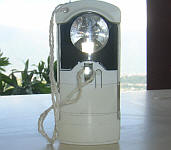 What is better something pretty or something practical?
What is better something pretty or something practical? I feel practical over pretty is better and it’s a model which works for me. If someone is more focused on aesthetics, it doesn’t matter how functional something is, they won’t use it if it’s not pretty. Those of us who are more practical and not interested in how pretty something is tend to believe we are right and others are wrong.
I feel practical over pretty is better and it’s a model which works for me. If someone is more focused on aesthetics, it doesn’t matter how functional something is, they won’t use it if it’s not pretty. Those of us who are more practical and not interested in how pretty something is tend to believe we are right and others are wrong. Life is more interesting because we are all different. We all have our own way of thinking and acting. Imagine how boring things would be if we were all alike!
Life is more interesting because we are all different. We all have our own way of thinking and acting. Imagine how boring things would be if we were all alike! What is perfection?
What is perfection?